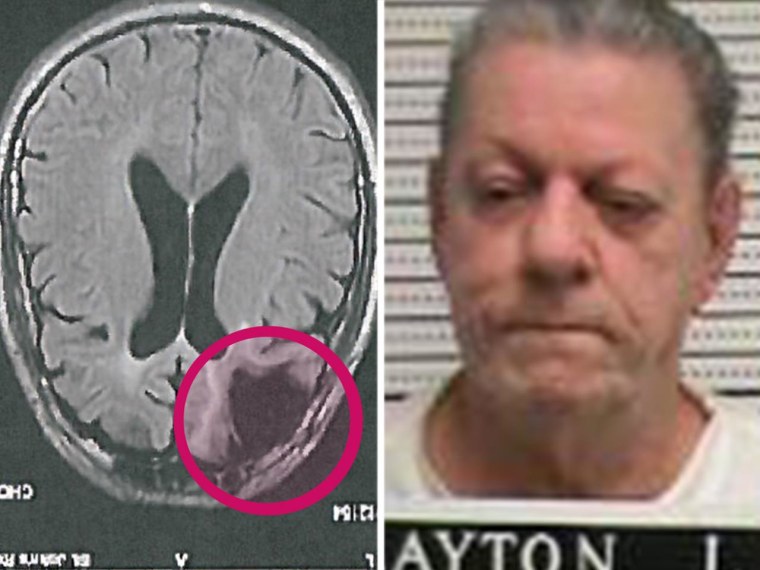Missouri cop killer Cecil Clayton was executed Tuesday night after the U.S. Supreme Court rejected arguments he should be spared because he was missing a piece of his brain.
Clayton, who at 74 was the state's oldest death-row prisoner, was pronounced dead at 9:21 pm CT, eight minutes after his lethal injection was administered, prison officials said in a statement.
"They brought me up here to execute me," he said in his final statement.
Clayton was convicted of murdering sheriff's deputy Chris Castetter after a domestic disturbance in 1996. His case drew extra attention because of his brain injury, the result of a 1972 sawmill accident that forced doctors to remove one-fifth of his frontal lobe. His lawyers contended the damage not only sparked a massive personality change that may have turned him into a killer, but also rendered him mentally incompetent and therefore ineligible for capital punishment.
"Cecil Clayton had — literally — a hole in his head," his attorney, Elizabeth Unger Carlyle, said in a statement after the execution. "Executing him without a hearing violated the Constitution, Missouri law and basic human dignity.
"He suffered from severe mental illness and dementia related to his age and multiple brain injuries," she added. "The world will not be a safer place because Mr. Clayton has been executed."
Missouri had argued that medical experts found Clayton understood why he was being executed and that meant he was competent to face the needle. They maintained that his intellectual deficits had to be present before he turned 18 to let him escape execution and that he waited too long to raise his claim.
Castetter's brother said in a statement that he had no doubt Clayton was in his right mind.
"We know this execution isn't going to bring Chris back," he said. "But it destroys an evil person that would otherwise be walking this earth."
Clayton's 11th-hour appeals delayed his execution for several hours. But ultimately, none of the U.S. Supreme Court justices accepted his claims arguments for a stay based on his brain injury.
Four justices from the liberal wing did say they would have granted a stay based on his claim that Missouri's secrecy-shrouded process for obtaining the lethal dose of pentobarbital could lead to an unconstitutional death.
Gov. Jay Nixon also denied him clemency in the final minutes, saying he agreed with the state's assessment that Clayton was competent.
"This crime was brutal and there exists no question of Clayton's guilt," he said in a statement.
